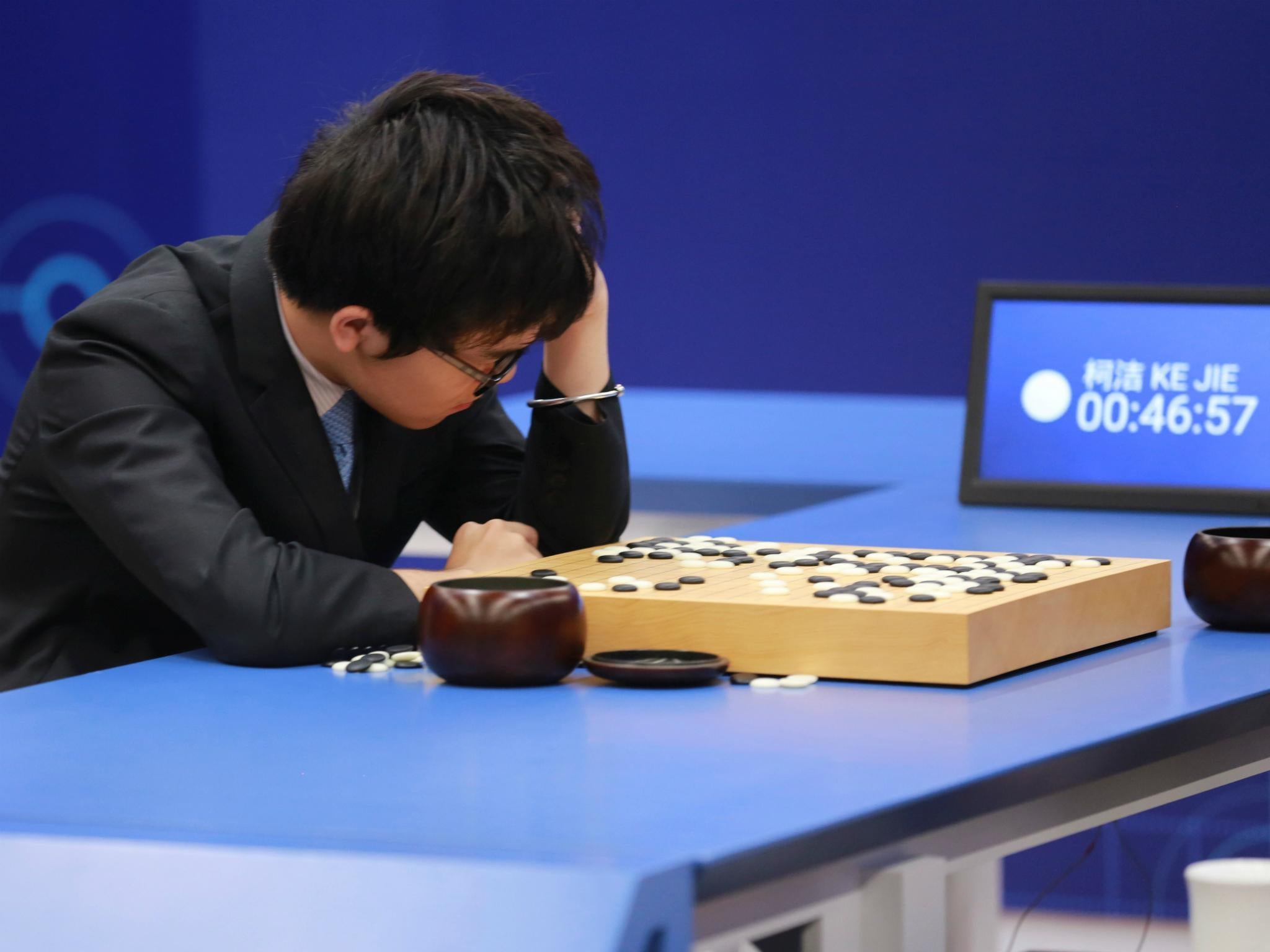The Independent's journalism is supported by our readers. When you purchase through links on our site, we may earn commission.
Google creates AI that can teach itself and 'isn't constrained by the limits of human knowledge'
It became one of the greatest Go players of all time in a matter of days, when humans have been playing the game for thousands of years

Google has developed a computer program that teaches itself.
The company’s AI division, DeepMind, has unveiled AlphaGo Zero, an extremely advanced system that managed to accumulate thousands of years of human knowledge within days.
DeepMind says it’s the most powerful program it has created, because it isn’t “constrained by the limits of human knowledge”.
AlphaGo Zero is the latest evolution of AlphaGo, the first computer program to ever defeat a world champion at the ancient Chinese game of Go.
Unlike previous versions of AlphaGo, however, Zero was only provided with the rules of the game. It had to learn how to play all by itself, whereas the others were trained using data from thousands of games played by humans.
After just three days, AlphaGo Zero took on the version of AlphaGo that defeated 18-time world champion Lee Sedol. Zero won comprehensively, by 100 games to nil.
After 40 days, it competed against AlphaGo Master, the version that conquered Ke Jie, the world’s top player. Zero won by 89 games to 11.
“Previous versions of AlphaGo initially trained on thousands of human amateur and professional games to learn how to play Go,” wrote DeepMind in a blog post.
“AlphaGo Zero skips this step and learns to play simply by playing games against itself, starting from completely random play.”
Go has been played by humans for thousands of years, yet within a matter of days, a computer program was able to learn the game from scratch and become, quite possibly, the greatest player of the game the world has ever seen.
Though it started off like a human beginner, Zero quickly improved and even developed “unconventional” strategies and new moves that humans have never thought of before.
“Artificial intelligence research has made rapid progress in a wide variety of domains from speech recognition and image classification to genomics and drug discovery. In many cases, these are specialist systems that leverage enormous amounts of human expertise and data,” said DeepMind.
“However, for some problems this human knowledge may be too expensive, too unreliable or simply unavailable. As a result, a long-standing ambition of AI research is to bypass this step, creating algorithms that achieve superhuman performance in the most challenging domains with no human input.”
AlphaGo Zero is seen as a significant step towards that goal, and its creators are confident that they’ll be able to use similar techniques to tackle major real-world problems in the future.
“If similar techniques can be applied to other structured problems, such as protein folding, reducing energy consumption or searching for revolutionary new materials, the resulting breakthroughs have the potential to positively impact society,” said DeepMind.
However, this will present far more difficult challenges than creating AlphaGo Zero. Go is governed by a finite set of rules, making it much easier to understand and master than more abstract issues. Still, it’s an enormous step.
“By not using human data — by not using human expertise in any fashion – we’ve actually removed the constraints of human knowledge,” said AlphaGo Zero’s lead programmer, David Silver, reports to the Verge.
“It’s therefore able to create knowledge itself from first principles; from a blank slate.”
The research paper has been published in the science journal Nature.
Join our commenting forum
Join thought-provoking conversations, follow other Independent readers and see their replies
Comments
Bookmark popover
Removed from bookmarks